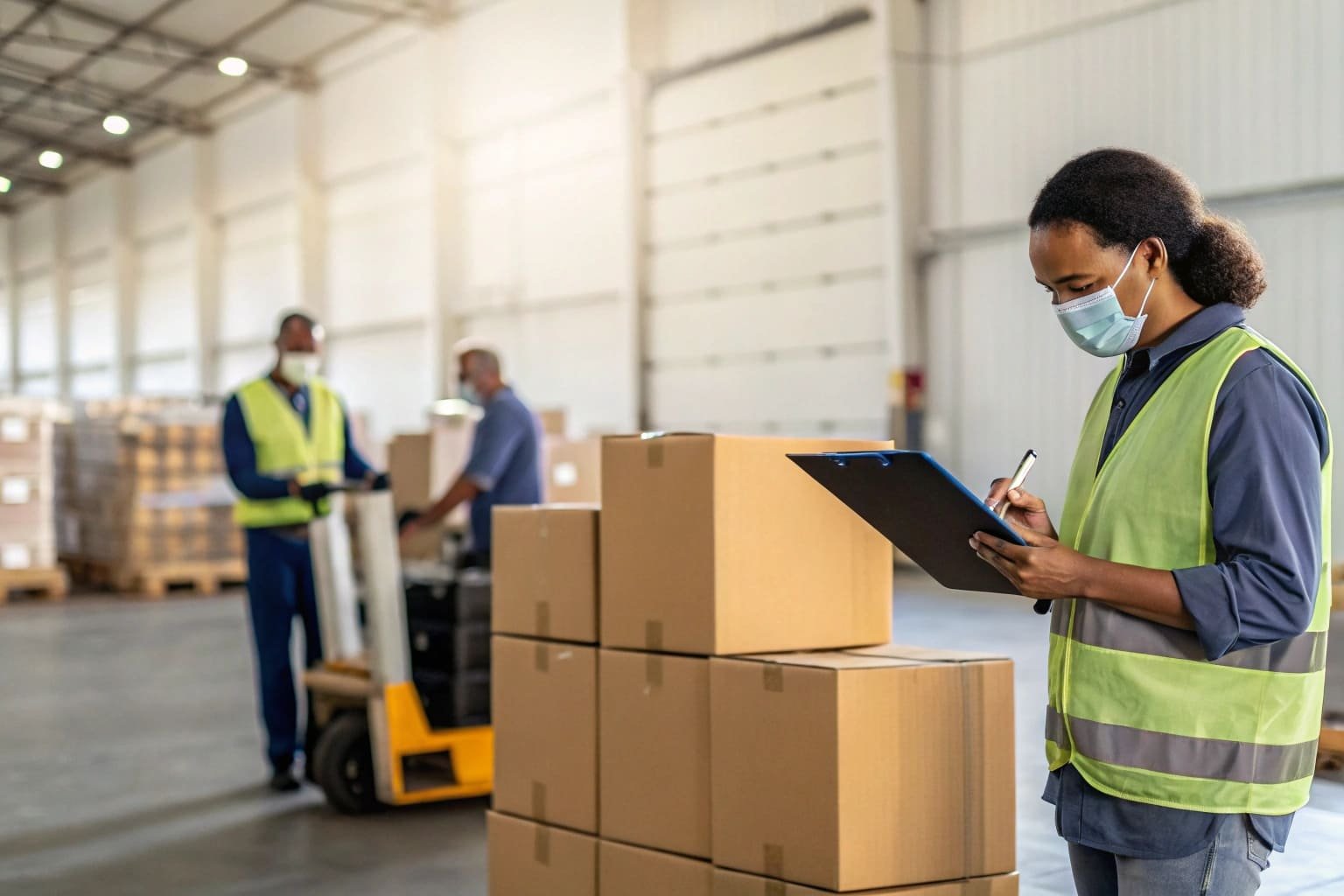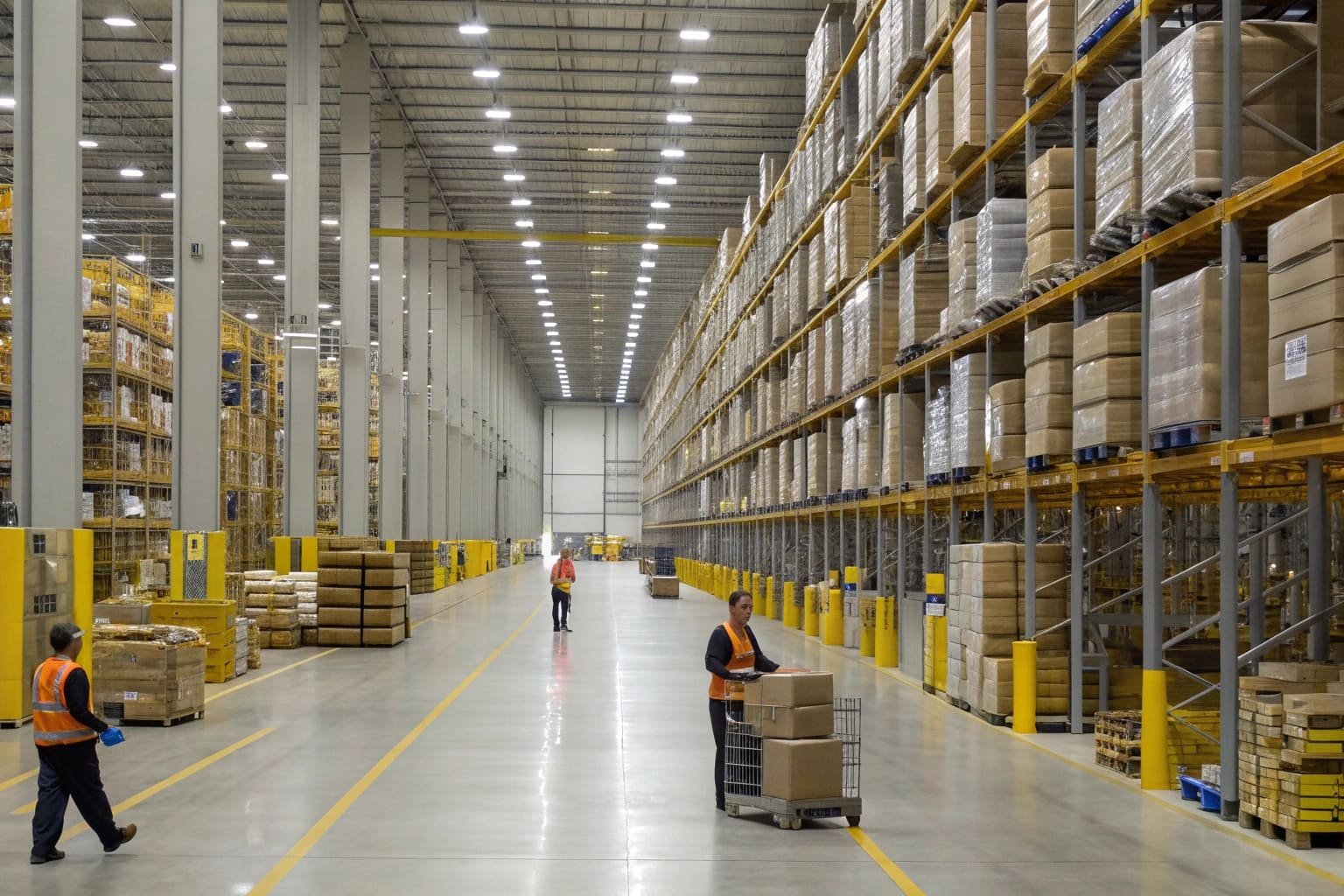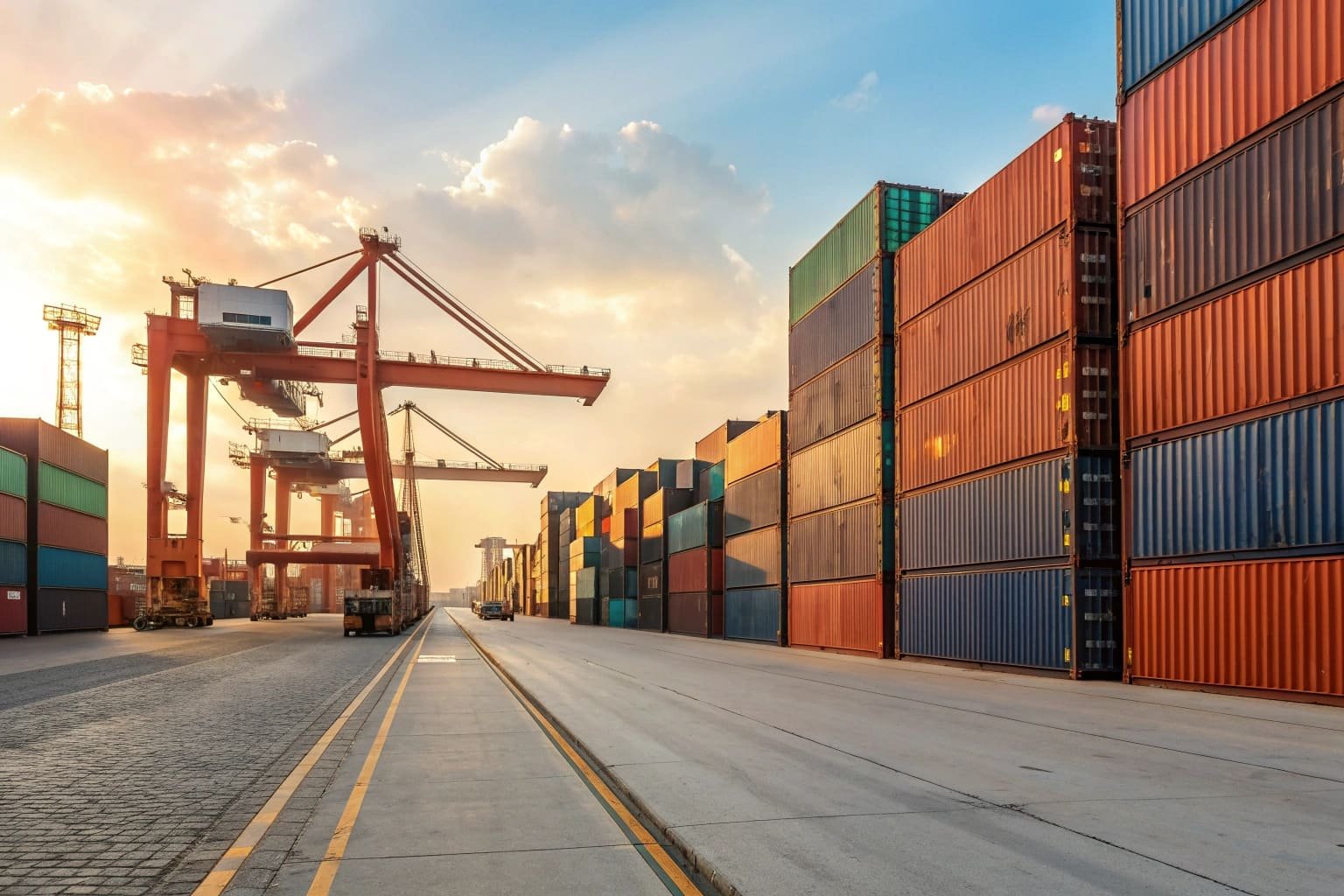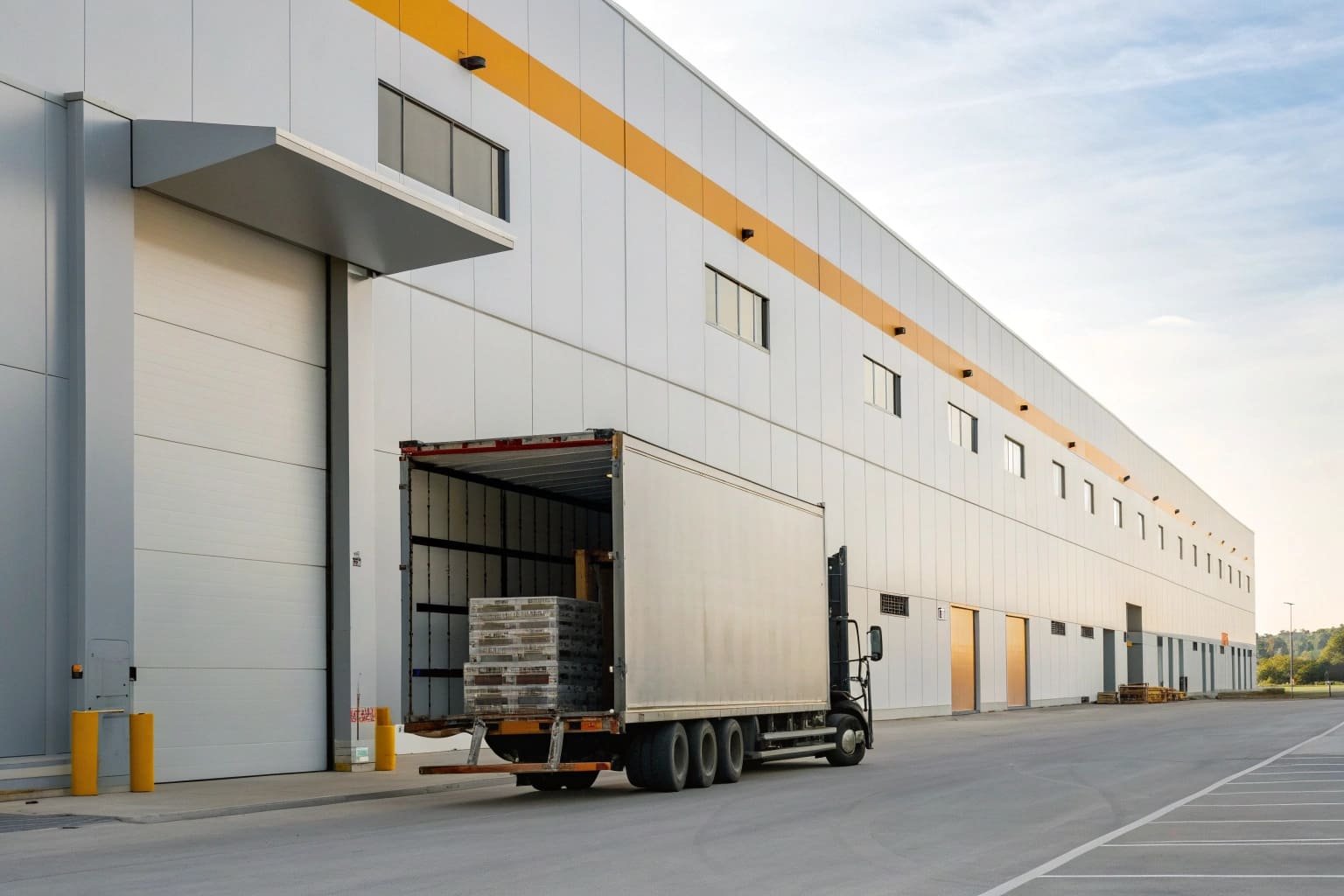In today’s fast-paced business environment, managing logistics efficiently is a key challenge. That's where third-party logistics (3PL) comes in. By outsourcing key logistics operations, businesses can streamline their supply chain, cut costs, and focus on core operations. But what exactly is 3PL, and why should your business consider it?
What Does 3PL Mean in Logistics?
3PL, or third-party logistics, refers to outsourcing logistics processes like warehousing, inventory management, and fulfillment to an external provider. These companies handle key supply chain functions, allowing businesses to focus on core operations. 3PL services can range from simple shipping coordination to full supply chain management, depending on the needs of the business. Utilizing 3PL helps companies save costs, enhance efficiency, and improve customer satisfaction through optimized logistics processes.
The concept of 3PL has evolved over time. Initially, logistics primarily involved transporting goods from one location to another. However, with the complexities of modern global supply chains, 3PL providers now offer a wide array of services, including inventory management, order processing, transportation, and even customer service.
What Is a Third-Party Logistics Provider (3PL)?
A third-party logistics provider (3PL) is a company that specializes in offering outsourced logistics services. These services can cover anything from the storage and shipping of products to more advanced solutions like supply chain management, freight forwarding, and customs brokerage. The idea is to allow businesses to focus on core activities, such as product development, marketing, and customer engagement, while a 3PL takes care of the logistics.
Many e-commerce companies, especially those handling large volumes of orders, rely heavily on 3PL providers. These companies often integrate 3PL services into their operations to ensure smooth order fulfillment, timely shipping, and customer satisfaction. For example, many online retailers partner with 3PL providers to handle everything from warehousing to returns management.
How Do 3PLs Make Money?
Third-party logistics providers typically make money by charging fees for the services they provide. The fee structure can vary depending on the service package. For example, a company might charge based on the number of products picked, packed, and shipped. This "pay-as-you-go" model allows businesses to scale logistics operations according to demand without committing to expensive, in-house logistics infrastructure.
Other pricing models include flat-rate fees for warehousing or storage, variable rates based on shipping distances, and charges for additional services like order tracking, inventory management, or freight consolidation. Because of this variability, companies using 3PL providers can benefit from significant cost savings by paying only for the services they use.
Is FedEx Considered a 3PL?
Yes, FedEx Supply Chain is considered a 3PL provider. Formerly known as GENCO, FedEx Supply Chain offers a range of third-party logistics services, including warehousing, transportation, order fulfillment, and reverse logistics. They serve various industries such as retail, healthcare, and technology.
FedEx’s 3PL services are not limited to e-commerce. They also support industries requiring specialized handling, such as electronics and healthcare products. By leveraging the extensive FedEx logistics network, businesses can access scalable logistics solutions, benefit from quick delivery times, and access international shipping options.
What Are Examples of 3PL Companies?
There are many well-known 3PL companies worldwide, including:
- DHL Supply Chain: A leader in global logistics, offering comprehensive warehousing and distribution solutions.
- UPS Supply Chain Solutions: Offers freight forwarding, logistics, and supply chain management across industries.
- C.H. Robinson: Known for its advanced logistics technology and supply chain solutions for companies of all sizes.
- ShipBob: Specializes in e-commerce logistics, providing small and medium-sized businesses with affordable fulfillment and shipping options.
- FedEx Supply Chain: A major player in global 3PL services, known for high-quality distribution and fulfillment solutions.
Each of these providers offers a unique blend of services, technologies, and specializations, making it easy for businesses to find a 3PL that fits their specific needs.
3PL vs 4PL: What’s the Difference?
While 3PL focuses on logistics services like warehousing and shipping, a fourth-party logistics provider (4PL) takes on a more comprehensive role. A 4PL provider manages the entire supply chain for the client, often integrating multiple 3PLs to handle different aspects of the logistics. In short, 4PLs act as logistics integrators or supply chain orchestrators, offering strategic oversight rather than just operational services.
For businesses with complex, global supply chains, working with a 4PL can be more beneficial. A 4PL offers more advanced analytics, optimizes vendor management, and provides greater visibility across the supply chain, enabling businesses to make better decisions about their logistics.
What Services Do 3PL Companies Offer?
3PL providers offer a wide array of services that go beyond just transportation and warehousing. Here are some of the most common services provided by 3PL companies:
- Warehousing and Storage: 3PLs manage storage facilities, allowing businesses to store products close to their customer base.
- Order Fulfillment: Handling the picking, packing, and shipping of orders.
- Inventory Management: Real-time inventory tracking and stock replenishment, reducing stockouts and overstocking.
- Transportation Management: Coordinating freight transportation, including truckload, less-than-truckload (LTL), and parcel shipping.
- Reverse Logistics: Managing returns, repairs, and recycling processes efficiently.
- Freight Forwarding: Organizing the transportation of goods across international borders, including customs clearance and regulatory compliance.
How to Choose the Right 3PL Provider for Your Business?
Choosing the right 3PL provider depends on several factors. Here are some key considerations:
- Service Offerings: Ensure the 3PL provides all the services you need, from storage and shipping to advanced logistics solutions.
- Technology Integration: The 3PL should offer advanced technology solutions such as warehouse management systems (WMS) and transportation management systems (TMS).
- Scalability: Can the 3PL scale its services as your business grows or during seasonal peaks?
- Industry Experience: Some 3PLs specialize in certain industries, so ensure the provider has relevant experience in your sector.
- Geographic Coverage: For businesses shipping internationally, ensure the 3PL has a robust global network.
Role of a Third-Party Logistics Company
A 3PL company plays a critical role in streamlining supply chain operations. By taking over key logistics functions, they enable businesses to focus on growth and expansion rather than being bogged down by the complexities of logistics. The right 3PL can enhance efficiency, reduce costs, and ultimately lead to a better customer experience through faster and more reliable delivery services.
Why Businesses Are Adopting 3PL Services in 2024
In 2024, the demand for 3PL services is higher than ever. The e-commerce boom, paired with increasing consumer expectations for fast and accurate deliveries, has pushed companies to outsource logistics functions to expert 3PL providers. Many businesses realize that by outsourcing their logistics, they can focus on core competencies and respond to changes in market demand more flexibly.
Moreover, the COVID-19 pandemic has highlighted the need for businesses to have agile and resilient supply chains. As a result, 3PL providers are becoming crucial partners in navigating these complexities and managing the disruptions that can occur in the global supply chain.
How 3PL Warehouses Improve Inventory Management
Effective inventory management is crucial for maintaining operational efficiency. 3PL warehouses leverage advanced technologies, such as real-time tracking, automated replenishment, and data analytics, to manage inventory with precision. This results in fewer stockouts, lower carrying costs, and the ability to meet customer demand more effectively.
Conclusion
In summary, third-party logistics offers businesses an opportunity to streamline their supply chain, save costs, and improve operational efficiency. Whether you’re a small business or a large enterprise, 3PL can scale with your needs and deliver logistics solutions that enhance customer satisfaction and drive growth.






